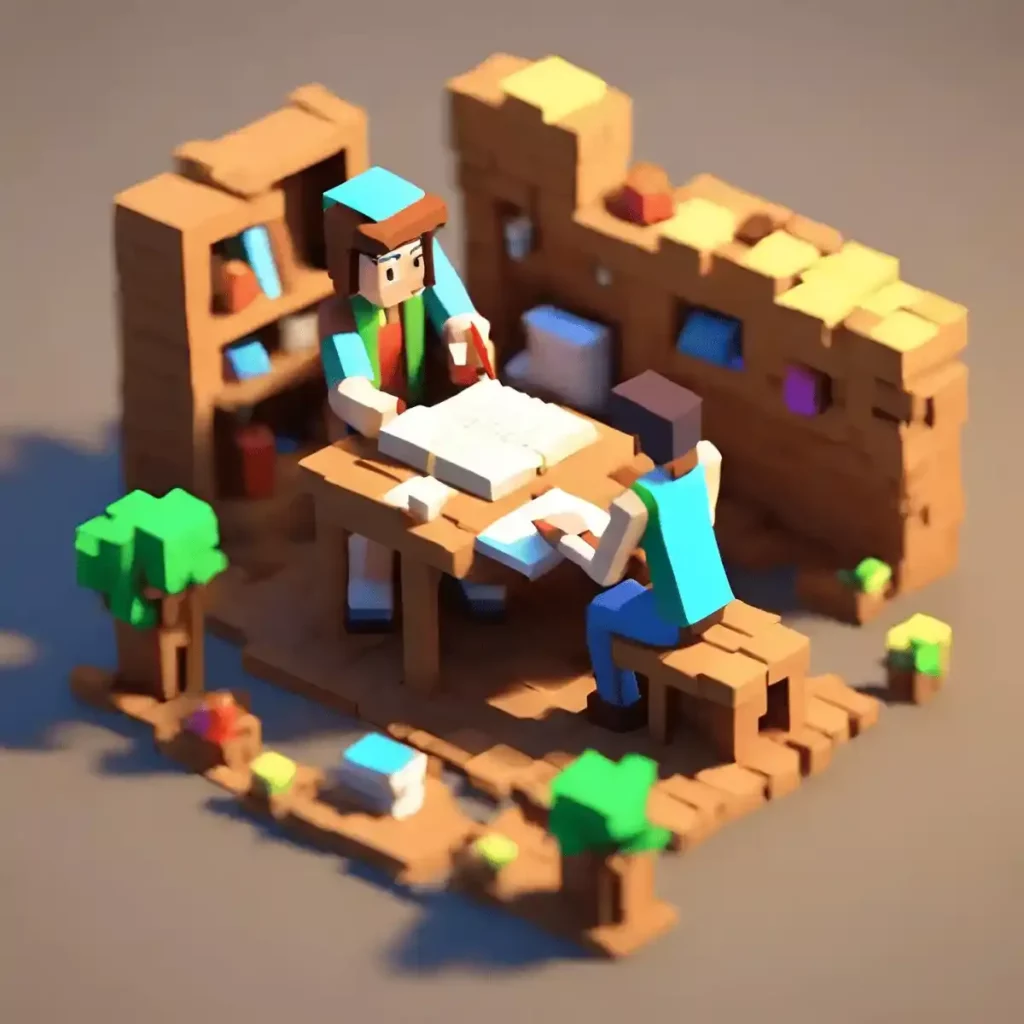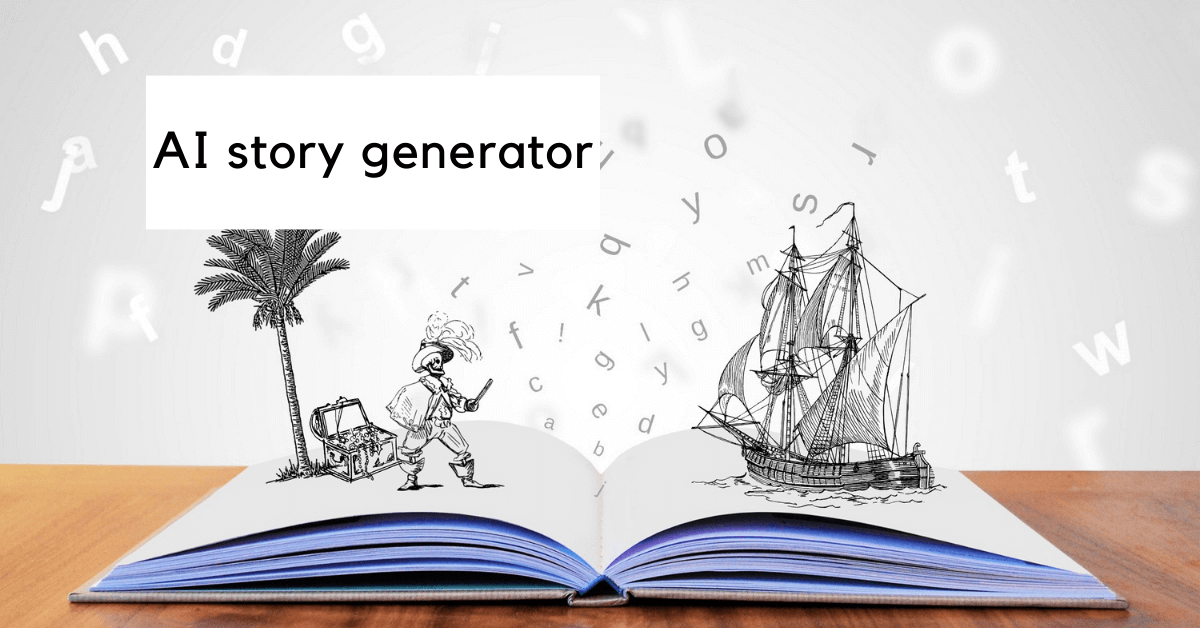9 Ways You Can Use an AI Story Generator in your Writing
What if you had a personal assistant that you could reach at any time of the day, with a single prompt, and write a first draft for the introduction of your next novel?
Well, meet your new best friend – AI story generators.
These writing assistants help you write engaging stories while improving your writing process.
From plot points to short stories to a good old love story, AI story generators are helping writers stay efficient and productive.
Think of them as a creative and automated workshop full of professional brainstormers, ready to toss unique compelling story ideas your way.
In this blog, we’ll explore what an AI story generator, and 9 reasons why you might consider using an AI story generator in your daily writing.
What is an AI story generator?
AI story generators work alongside casual and professional writers as a personal assistant of sorts.

They’re a cutting edge tool that saves writers a lot of time with things like character development and writing a good story.
In terms of how AI story generators work, on a technical level they’re powered by natural language processing (NLP) models.
These models take in user inputs and write humanlike responses autonomously.
At its core, it’s a tool that interprets prompts based on the dataset it’s trained on. The AI then generates contextually relevant responses.
AI story writers rely on deep learning models like OpenAI’s GPT (Generative Pre-trained Transformer) such as GPT-3, GPT-4, or other similar architectures.
These models are trained on a diverse array of texts from literature to articles to a good chunk of the internet, basically.
The various AI story generators available today serve as tools to assist writers.
In a collaborative effort, they offer inspiration and help writer’s overcome the infamous writer’s block.
They also streamline the content creation creation process. It’s like having a reservoir of ideas at your fingertips.
As a side kick, AI story writing assistants complement your craft and help you with brainstorming ideas.
Why should a writer use an AI story generator?
There are various reasons why a writer might consider integrating an AI story generator into their creative process.
Writers often face the infamous writer’s block – AI powered writing tools like Sudowrite and Rytr encourage writers to get creative and explore story arcs they may not have thought of themselves.
Using artificial intelligence in your writing process saves you loads of time and allows you to spend more time on refining, editing, or expanding on your work.
If you’re on the fence about using an AI tool, it’s worth considering the idea that AI story generators aren’t here to replace human creativity but enhance it.
Although, we would be remiss not to mention the common concern surrounding possible plagiarism from AI writing.
AI writers are powered by sophisticated algorithms and trained on vast datasets of information.
Most reputable AI writing platforms like Jasper and Rytr come equipped with plagiarism detectors and guidelines that prioritize originality.
You can think of AI as a tool, not an autonomous creator. After all, someone has to prompt it to get a response.
Writers can harness AI story generators to spark ideas, refine concepts, and shape narratives collaboratively.
Who should use an AI story generator?
Let’s face the facts – AI writers are in nearly every copywriter or author’s arsenal.
From novels to blogs, movies, plays, and beyond, AI powered tools are helping professionals create content faster than ever.
And they complement human creativity.

For novelists, AI generated stories can develop within a vast range of genres. Whether your niche is in science fiction, fantasy, historical fiction, or romance, authors can create better stories in shorter amounts of time.
By collaborating with AI, writers can delve deeper into creating intricate plots filled with unexpected twists and turns.
For blog writers, the task to create captivating content on an ongoing basis is a real challenge.
AI writers can simplify the content creation process by providing outlines and initial drafts.
They’re efficient assistants and well-versed in what readers find interesting. AI story generators can even add structure to your content.
When it comes to movie scripts and plays, screenwriters can use an AI story generator for dialogue suggestions, scene development, and even crafting initial drafts.
That’s not all, either. AI powered writers can create short stories, poetry, marketing copy, and more.
9 ways writers can use an AI story generator
If you’re ready to take your writing to the next level, consider integrating an AI story generator into your work.
1. Idea generation
AI story generators are more than automated scribes; they’re idea machines with the ability to churn out seemingly endless prompts, themes, and story seeds.

You can generate diverse ideas across different genres and styles.
If you write a lot of blogs or even novels, consider investing in an AI writing assistant like Jasper.
Jasper offer a long-form document editor and swift content creation.
Like we mentioned, it’s best for those who write a lot. Like, a lot, a lot.
2. Plot development
Where should you take your story next?
AI writers like Sudowrite can help you develop crucial plot points, character interactions, and twists and turns. (Sudowrite actually has a handy “twist” feature).
When writers find themselves stuck at a narrative crossroads or grappling with the next plot twist, an AI story generator can help move things along.
It’s like having a brainstorming buddy by your side all the time.
3. Character creation
An AI story writer can help develop character profiles, traits, and backgrounds.
With the help of AI, you can pursue story ideas you may not have otherwise – With a simple prompt, you can create nuanced and compelling characters.
Writers can explore various archetypes and experiment with different ideas.
AI writers can suggest interesting character arcs, complex relationships, or unexpected developments.
4. Dialogue writing
Writing engaging dialogues between characters in a story can be challenging.
Adept conversationalists themselves, AI story generators are capable of crafting engaging and realistic exchanges. They largely understand the nuances of human speech and can help breathe life into fictional conversations.
An AI story generator can capture diverse tones, voices, and effortlessly adapt to the voices of different characters.
5. Writing prompts
If you want to keep the creative juices flowing, consider using an AI story generator to come up with new ideas and exercises.
An AI story maker can curate prompts that trigger new ideas and pathways for writers to explore.
They’re also proper idea repositories.
AI tools can encourage writers to push beyond their creative boundaries and present unconventional prompts or unexpected concepts that challenge conventional thinking.
6. Scene building
When it comes to building out the perfect scene and setting, AI writers can easily architect vivid and immersive story landscapes.

Create environments. Backdrops. Backgrounds. Nuance. Charm. Smells. Mountains. Feet tapping. Coffee in the air.
AI writers easily capture all the things and help immerse readers in the writer’s intended experience.
In our experience, Sudowrite does an awesome job at this.
7. Genre exploration
Can’t figure out your genre? Or maybe you have a character idea in mind, but you don’t quite have the storyline yet. Fear not!

AI story writers can help you explore your idea in lots of different ways – Whether it’s fantasy, the suspense of thrillers, or a dramas, AI tools can write in your intended tone (once you know what that is).
Writers can even experiment with blending elements from different genres or craft stories that defy conventional boundaries.
8. Language exploration
An AI story generator isn’t confined by linguistic boundaries.
You can write in formal prose, casual dialogue, or even emulate celebrities or historical voices.
By leveraging AI, writers can expand their repertoire and craft narratives that resonate with distinct, even evocative voices.
You can even write in other languages too. Think, a multilingual main character or background dialogues.
9. Editing and grammar assistance
Nothing beats having an editor in your back pocket. Not only can you use artificial intelligence to write captivating stories and characters, you can also use it to refine and polish your work.
Upload a draft or initial text and let the AI offer insights, corrections, and refinements.
AI writing tools like Author.ai employ sophisticated algorithms to scrutinize grammar, syntax, punctuation, and style.
It can highlight inconsistencies or suggest revisions to improve readability and coherence.
Final thoughts
Artificial intelligence is here, and from what we can tell, it’s not going anywhere. As time goes on, we’ll see more tools enter the market.
With an AI sidekick, writers can boost their creativity level and expand their horizons. Idea generation, plot development, character creation, or editing no longer takes weeks – but days.
AI writers are a powerful tool that can develop original stories based on the thoughts in someone’s head. Pretty cool, right?
Good stories are thoughtfully developed, and it never hurts having an extra set of eyes on your work.
These tools not only help develop a person’s writing skills, but they do a great job at turning imagination into reality.







